Alumni
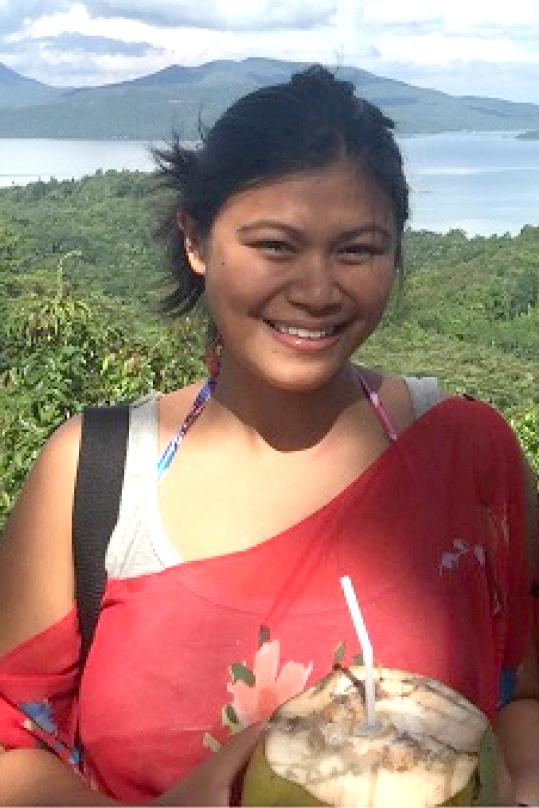
Jestine Abella
Biography
Jestine received an HBSc from the University of Toronto Scarborough where she double majored in Linguistics and Psychology. She discovered her interest in Linguistics when she took a class as an elective in Linguistics. "I had come into UTSC wanting to major in English and French. After a few courses, I discovered I didn’t have the same passion for dissecting literature and media as my classmates did and wanted something more structured/objective. I ended up enjoying the scientific aspect of Linguistics – creating hypotheses, collecting data, and ultimately getting a “peek” into how the brain works in processing and producing language. After speaking to professors, I looked into speech-language pathology and discovered how rewarding it was, and how it combined my interests and skill sets into a fulfilling career. I decided to volunteer with some SLPs in the GTA and it sort of progressed from there. " "The professors in the Centre of French and Linguistics had a big role in who I am today, because they were so supportive in a lot of ways. They provided me with encouragement and suggestions on how to succeed in my graduate school applications, and I’m extremely grateful for their advice. For example, they were happy to share their research with me, and encouraged me to think critically about the literature. They invited me to be a Research Assistant to get an understanding of the material beyond the classroom." Jestine considers her entire graduate school experience so far as her greatest accomplishment. "I worked really hard in my undergraduate so getting that acceptance letter felt like all my hard work finally paid off! Since then, I’m really proud of my growth as a student clinician, obtaining a full scholarship in my final year, and completing a clinical practicum in the Philippines to work with families and children with developmental language disorders."
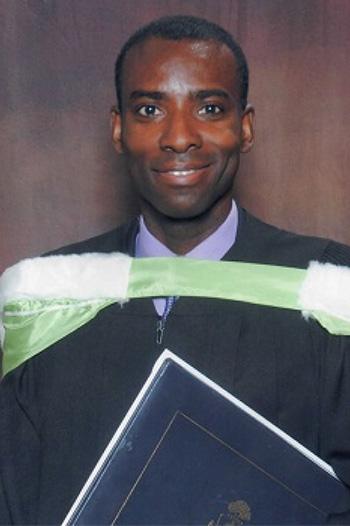
Abner Agenor
Biography
In 2014, Abner graduated from University of Toronto at Scarborough in the program of CTEP also known as Concurrent Teacher and Education Program. He received two degrees: Honours Bachelor of Arts with a concentration in French specialists and another in Bachelor of Education." I was fortunate to be part of a great cohort of students in the French department who used to demonstrate their knowledge and skills through various group discussions. I also worked in the French department as a French monitor for a couple of years." "My experience at the French department was amazing, unforgettable, and rewarding. I had great opportunities to meet some of the best French professors in Canada. They were courteous, supportive, and reliable to meet all the students’ needs in the department. They also assisted me to choose the program that would fit my career ambition. One of the reasons that I enjoyed the French courses at UTSC was the class sizes. They were small enough for the professors to give the students the attention they needed to succeed." Abner is currently employed as a teacher in a French immersion school by York Region District School Board. "The knowledge and experiences that I obtained at the University have helped me to compete in this ever-changing world."
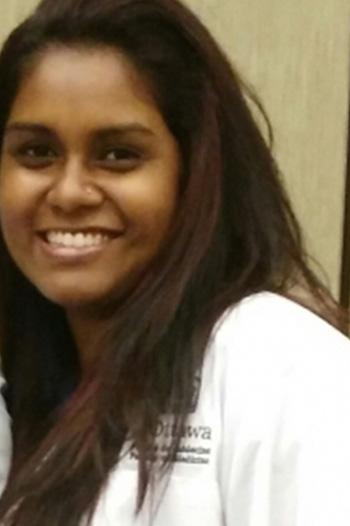
Annet Antanrajakumar
Biography
For Annet Antanrajakumar (BSc, 2014), a bilingual medical student at the University of Ottawa, it was love at first sound when she began studying French in elementary school. “When I started French immersion in Grade 5, I just fell in love with the language,” said Antanrajakumar, 25. “It was such a beautiful language.” She continued her immersive studies through high school and was determined not to lose her growing facility with French. “There was no one else in my family who spoke French and no other way to keep up the language except through school,” said Antanrajakumar, who grew up in Toronto speaking English and Tamil. She was accepted to U of T Scarborough to study biological sciences, another of her interests, and also registered for first-year French. In talking with her academic advisors, Antanrajakumar discovered that she could incorporate both subjects into her degree and pursued a double major in integrative biology and French. “It wasn’t tough to fit all of the required courses into my timetable, but with all the three-hour lab courses, it meant that I was at school all day from Monday to Friday,” she said. As if her courses didn’t keep her busy enough, Antanrajakumar also ran a facilitated study group for science students, volunteered at The Hospital for Sick Children and Toronto Rehab hospital and taught Sunday school at her church. “It was nice to be busy doing things I liked,” she said.
After graduation, Antanrajakumar spent a year working in a bank, dealing with their francophone clients. She loved using her French skills, but discovered that banking wasn’t right for her. “I always wanted to be in a career where I could help people,” she said, and she decided to apply to medical school – at the University of Ottawa, where she had the choice of taking her courses in English or French. Naturally, Antanrajakumar chose to immerse herself in the curriculum taught in French. “To be honest, I’m not a French expert yet and sometimes, I don’t understand a word or two and it throws me off, but I have francophone friends, so I can nudge them to get a definition. I’m always learning.” Medicine has proven to be the right path for her, and she’s thrilled to be cementing her French as well. “If I had it to do all over again, I’d want to do exactly the same thing I did,” she said. “I know enough French now so that it will always stay with me, and it allows me to keep many doors open.” Professor Karen McCrindle, one of her teachers and the director of UTSC’s Centre for French and Linguistics, calls Antanrajakumar “a credit to our program and to UTSC.” “Annet followed her passions, which may seem contradictory from the outside, but combining her interests has clearly helped her to chart a path all her own,” she said.
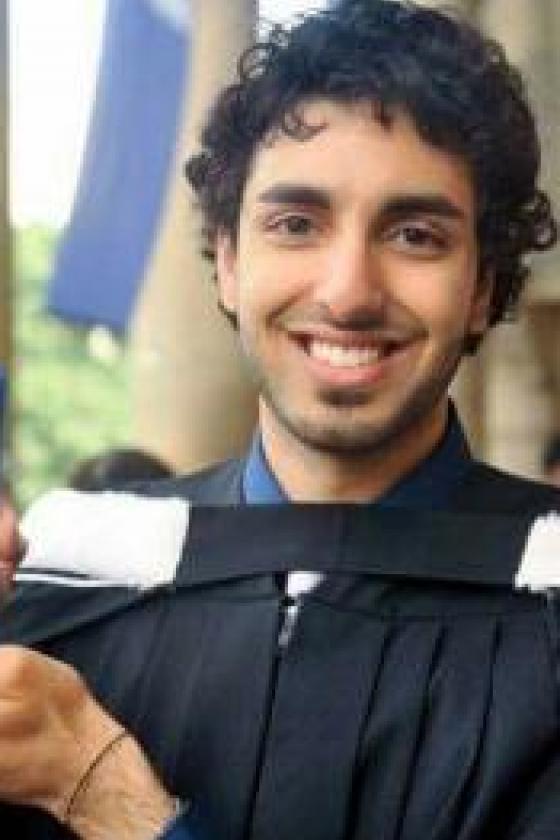
Shan Arora
Biography
Academically, Shan earned an Honors Bachelor of Science from the University of Toronto at Scarborough, where he majored in both Economics for Management Studies and Mental Health Studies, as well as a minor in French."I first became interested in law when I learned about the complex interaction between the various subfields of common law in high school and participated in a mock criminal law trial, as well as a mock International Criminal Tribunal for Rwanda. My desire to pursue a professional legal career solidified during the 2014 Ontario General Election campaign where I learned about the importance of efficient and effective advocacy."Shan considers his greatest accomplishments is having his policy regarding a national strategy to prevent, treat, and reduce the harmful effects of drug addiction formally adopted by the Ontario Young Liberals in a competitive process, where the policy passed at the local, regional, and finally, provincial stage."
" UTSC offers a very supportive and close-knit community, which provides the resources and environment to learn about who you are and to develop your identity. The Centre for French and Linguistics is the epitome of this, because you learn about the importance of language and culture and the critical role they play in one’s phenomenology or worldview. The CFL also offers small class sizes at the outset of your undergraduate career, and the faculty and peers are some of the most devoted and caring people I have ever met. I still connect with faculty at the CFL and some of my best friends today are those who happened to sit next to me in French class one day."
Awards & Grants
- Governor General’s Academic Medal
- John Black Aird Scholarship.
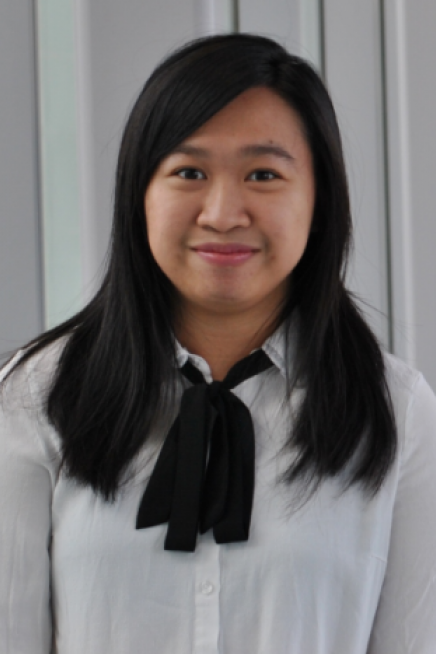
Eaman Choi
Biography
On Fall Convocation 2015, Eaman received an Honours Bachelors of Science for double major in mental health studies and linguistics. She chose the linguistics program initially to pursue in graduate school for speech-language pathology. From 2013, she did a work-study program working as a research assistant for a swallowing lab at Toronto Rehabilitation Institute.
It was a great experience for her to learn and understand the dynamics that were involved in the field of speech pathology. Despite the differences from how others perceive of her capabilities there, she decided to look further into the field in counseling and disability studies. Eaman still persevered in pursuing linguistics as her major because she is fond of learning the complexity of how languages are being formed and the history of the development of language. Thankfully, she found other linguistics faculty members that were more than happy to share their knowledge in their field of expertise. Eaman learned so much from Professor Karen McCrindle and Eri Takahashi for influencing her into continuing her further studies in linguistics. Their academic support and office hours do make an impact in helping her reach into her academic goals. Right now, Eaman is pursuing a Masters of Applied Disability Studies at Brock University. She plans on becoming a behavioural consultant/therapist as her future career.
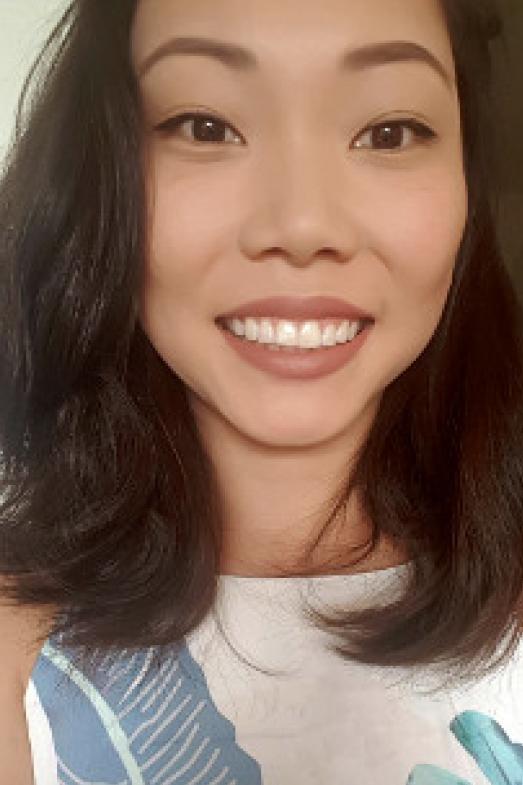
Michelle Chung
Biography
Michelle received her Honours Bachelor of Science degree from the University of Toronto Scarborough in 2015, with a double major in Psychology and Linguistics. She recently received her acceptance into the School of Communication Sciences & Disorders at Western University where she will start the Speech Pathology program in the Fall of 2017. Michelle first became mindful of speech pathology while hearing stories of her family helping Michelle's grandmother overcome a communication disorder through struggles and successes of various communication strategies. This motivated her to take the Introduction to Linguistics courses offered at UTSC, which sparked her interest in the various branches of Linguistics. Michelle started University knowing she wanted to specialize in Psychology, but after taking the Introduction to Linguistics courses, she instantly knew she wanted to do a double major in Linguistics as well.
Throughout her years at UTSC, Michelle was appreciative of the experience in research she took part in. Thanks to Professor Kang, she was able to work with a professor at York University doing field work for a study having to do with Bilingualism. Michelle also conducted electroencephalogram experiments as a research assistant for Professor Monahan. She volunteered at an Aphasia Program where her passion and knowledge of working with people with Aphasia grew. She hopes to work with people with Aphasia in the future and help further develop current communication strategies
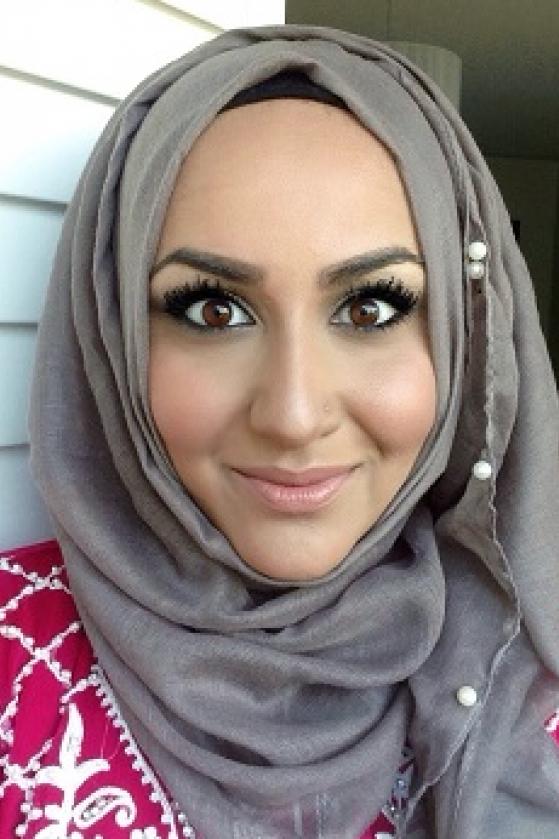
Natasha Daya
Biography
Natasha earned a H.B.a in economics and French , with a minor in sociology, from the University of Toronto. She also completed her B.Ed from York University. She considers being a full time contract teacher in the TDSB, as her biggest accomplishment. "I love seeing the growth and change in my students, and how their development changes me. My favorite part is when students contact me after they have graduated with such positive feedback and appreciation of my methods, course or just any way I had impacted them!" When speaking about her experience with the Centre of French and Linguistics at UTSC; "Prof. McCrindle had a huge impact on my confidence as a non-immersion, non-francophone, core French learned student. She allowed me to develop my oral communication skills with confidence as I was often intimidated by others who were super proficient in speaking. I understood everything and was able to read and write, however always felt insecure about speaking the language.
She created an environment where students felt cared for, learned well and were able to make mistakes in order to be themselves and ameliorate their development." Natasha suggests that a great way to develop your love for the career of teaching, is to spend time volunteering as much as you can within different levels of teaching." I would also say not to give up in this economic and tough teaching climate. Although there is talk about strikes and minimal positions available, there is always room for you! It may take time, and you have to be patient, but those individuals who truly have the love of teaching and life-long learning are the ones that will continue to shape our kiddos for the future generations to come. "
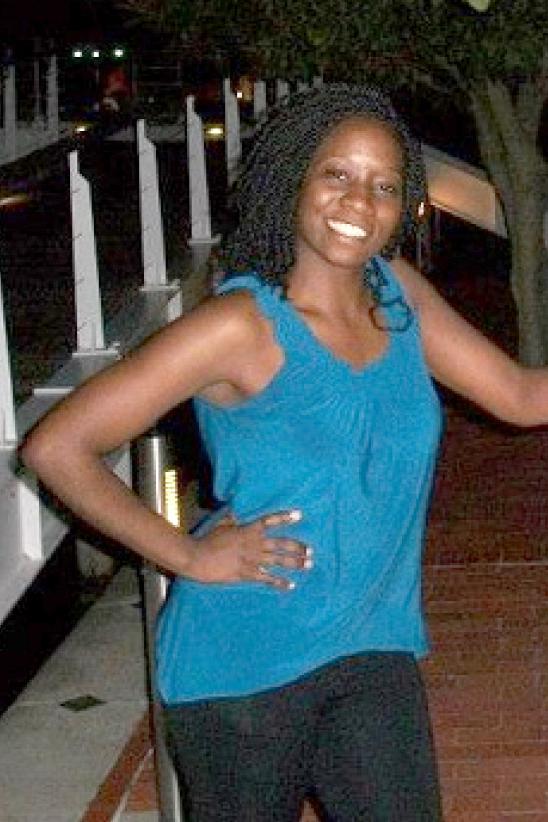
Ed-Esther Michèle Kenga
Biography
Ed-Esther moved from Montreal to Oshawa when she was seventeen to pursue her education. She considers that as her greatest accomplishment because since then, she has managed to accomplish various feats in her personal, educational and professional life. Ed-Esther earned a Ministerial Diploma from World Harvest Bible College and an Honours Bachelors of Arts from the University of Toronto. Following that, she obtained a Bachelors of Education from OISE. Ed-Esther is currently working on completing her Masters of Education at OISE (Aug 2016).
During high school, she realized how fun and rewarding it was to help out other students with grasping concepts of the French language and decided to pursue a career in teaching. "The trajectory I took at and from UTSC greatly helped me to be where (and who) I am today. In terms of career path, I feel that having studied in the French Department at UTSC opened my eyes to the Francophone Culture in ways I had not been aware as a high school student. The French Specialist as well as Drama Major enabled me to prepare for my BEd and gave me the connections I needed. An example of this is that in the FREB11 course, I had to find a few high schools to do observations of how French was taught at the Core, Extended and Mother Tongue levels.
During my observations at a local Francophone school, I was able to interview and be hired as a pre-accredited supply teacher. Here I gained five years of experience with students all across Toronto and Durham regions from K – Gr. 12. This experience (as well as my BEd and some key other things) helped me to land a full-time position at an incredible IB school in Toronto." Ed-Esther is really interested in Bilingual Education as well as the education of African-Canadian youth.
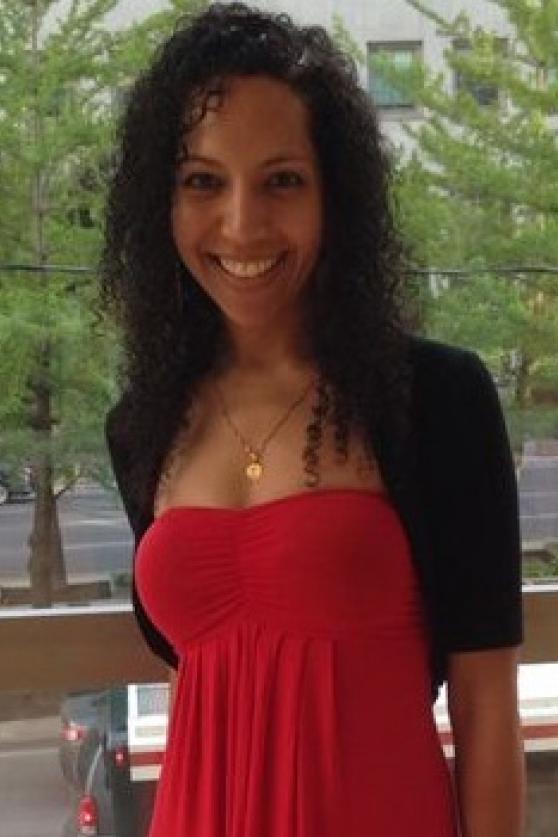
Darein El Arabi
Biography
Born in Egypt and having moved between Toronto and Montreal at a young age has not only helped Darein develop strong work ethics and open-mindedness, but has also provided her with the opportunity to learn Canada’s both official languages in addition to her mother tongue, Arabic. She initially went to University of Toronto Scarborough to study business management. However, along the way, she discovered her passion for languages and decided to pursue studies in French. She graduated from UTSC with an Honours Bachelor of Arts degree in French studies. Darein’s belief in being a life-long learner and her enjoyment of the undergraduate courses offered at UTSC, has expanded her curiosity to learn more by pursuing graduate studies in French. She received a Master of Arts degree in French literature from U of T, where she wrote a thesis entitled: *Les stéréotypes du genre sexuel et l’identité féminine dans L’Obéissance de Suzanne Jacob et Copies conformes de Monique LaRue*. Darein wanted to combine her passion for French along with her passion for teaching. As a result, she continued her studies at OISE/UT and obtained a Bachelor of Education degree.
She is currently teaching French with the Toronto District School Board at the high school level. She enjoys inspiring and encouraging her students to reach their fullest potential. She also loves to travel to explore various cultures and traditions in order to bring a different dimension to her teaching. I really enjoyed the small classes at UTSC. I had the opportunity to work closely with the professors in the French department. They were available to offer support and give advice whenever needed. The professors were passionate about their subject areas and were able to transmit this passion to the students. There was a variety of interesting courses that ignited my curiosity about the French language and culture, which motivated me to pursue graduate studies in French literature.
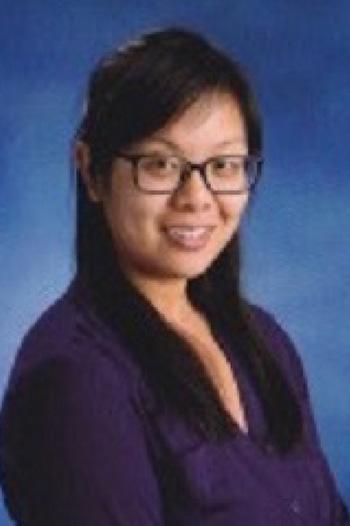
Connie Fang
Biography
Born in Montreal, Connie attended Francophone schools until grade 10. She finished her high school in the French Immersion program in Toronto. Following that, she graduated from University of Toronto, with an H.Ba in the Education of Teachers in French. After that, she completed her M.A. at UofT in French Literature. Later on, she continued her studies at OISE/UT and obtained a Bachelor of Education degree. "I started tutoring my mom friend’s son at a very young age. That was my first teaching experience. I tutored French at many tutoring schools during my undergraduate years, and with all of that I became interested in teaching French. I enjoy working with my students and getting to know them. I enjoy seeing progress in their learning and hearing that they like French. I enjoy hearing from my previous students and knowing that they are still learning French in high school." "Many professors at UTSC are not only expert in their field of teaching but they are also very caring. They are available for extra help and they make sure students understand the course content. Prof. Beauquis and Prof. McCrindle are examples of those excellent instructors. They gave clear lessons and expectations and they are also very caring.As a teacher right now, I try to deliver interesting lessons with clear expectations and encourage my students in pursuing their objectives." Connie stresses that learning a language is not always easy. " Seek help, practice it whenever you can. There is a lot of support at UTSC."
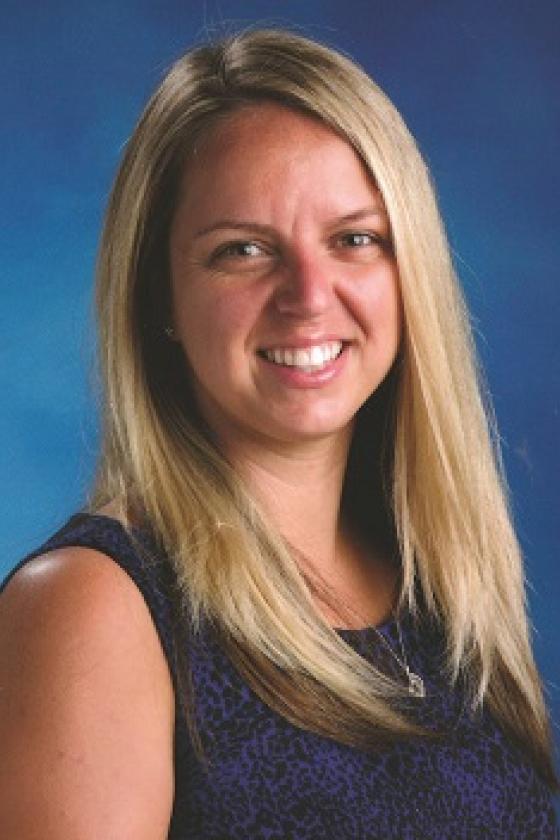
Marie-Eve Giguère
Biography
My family moved to Ontario from a beautiful small town in Quebec when I was nine years old. Having to learn English quickly was a huge adjustment. Luckily for me, numbers are a universal language, so I continued to excel at Math. After my high school graduation, I was accepted into UTSC for the Early Teacher Program. I’ve had a passion for teaching since an early age, and had been tutoring my peers in high-school calculus and algebra. I planned to focus on Math, and make it one of my teachables. As many first-year students likely discover, high-school aptitude in a subject doesn't necessarily guarantee success at university. I needed a new plan. It hadn't really occurred to me to focus on French, but in spite of my reservations I was growing more and more interested in the French Linguistics electives I was taking. My professors were engaged and motivating, and the course content was surprisingly new to me. Although Math didn’t turn out to be the right major for me, learning to refocus, make a new plan and move forward was a valuable life-lesson. I was the first person in my immediate family to graduate from university, an accomplishment I am extremely proud of. It was always a priority for me to gain as much education as I could, so when one of my professors encouraged me to enroll in the Master's program, I jumped at the opportunity. In a way, I was completing those degrees for my parents, as well as for myself.
I earned my Masters of Arts in French Linguistics at U of T, and enrolled in the PhD program. Two years into my doctorate, I was lecturing undergrad courses at UTSC. While it was incredibly self-affirming to be back at my alma mater, I knew deep down that it wasn't exactly the right fit. I applied to Trent University and graduated with my Bachelor of Education. On a typical day, I command several classrooms of 28 high school students. In all honestly, it's more challenging than teaching a lecture hall of 50 undergrads, but it's incredibly rewarding. My personal experience learning English as a second language helps me identify with my students, and makes me extremely patient.The best part of teaching is guiding young minds and helping them shape their futures. For me, that never gets old. Every day is an adventure, and I wouldn't be where I am now without the fantastic friends, professors and mentors I met at UTSC. If you're currently considering the applying to the French program, or becoming a teacher, I say go for it! Give it everything you’ve got, and you will be rewarded daily by your interactions with your students. And if you don’t enjoy it, it’s okay to change your mind and find your true passion.
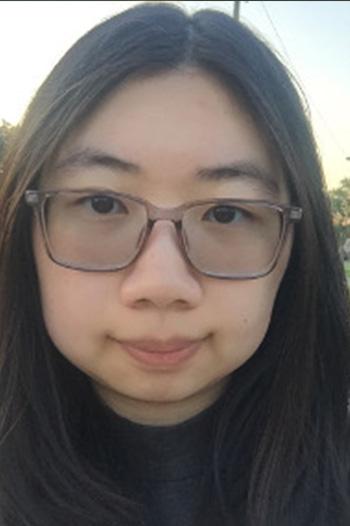
Anna Huynh
Biography
Anna received her Honours Bachelor of Science degree from the University of Toronto Scarborough (UTSC) with a double major in Psychology and Linguistics in 2016. She will begin her Master of Health Science degree in Speech-Language Pathology (S-LP) at the University of Toronto (U of T) with a full year scholarship (Ontario Graduate Scholarship) in Fall of 2017. "I learned about S-LP when I received speech therapy in high school. Experiencing both the challenges of a communication disability and the impact of speech therapy, I was inspired to pursue a career in S-LP. I majored in Linguistics, as many linguistic courses served as pre-requisites for graduate school. After taking LINA01, I had a new found interest for Linguistics and nearly took all of the courses offered at UTSC! I enjoyed classes taught by Professor Kang and Professor Helms-Park. Striving towards a career in S-LP encouraged me to get involved.
I provided opportunities for student engagement, as the Administrative Assistant for the Linguistics Student Association.
I also helped adults with Aphasia regain their voices in conversation. Currently, as President of Hear2Speak, a not-for-profit organization that focuses on speech and hearing, we are fundraising for speech assessments for the only S-LP in Nunavut. Working as a research assistant at the Oral Dynamics Lab, sparked a passion in me for research. I co-authored in the article 'Parent–child interaction in motor speech therapy', which was published in the Disability and Rehabilitation journal. Following my clinical degree, I will pursue a doctorate in S-LP with the goal of empowering the lives of people with communication disabilities. I am thankful to Dr. Kang and Dr. Helms-Park for their support (special mention: Dr. Namasivayam, Dr. Van Lieshout and Dr. DeLuzio from S-LP department), and most of all, delighted to be a part of the UTSC Linguistics community!"
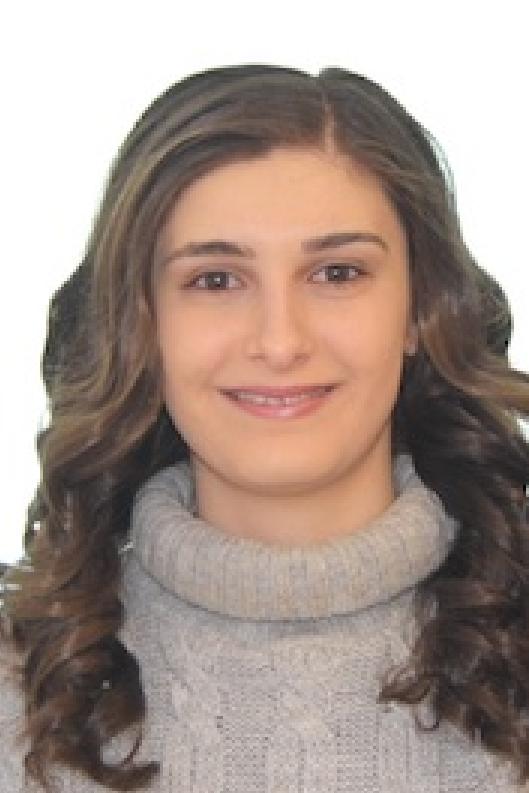
Talar Kanzoghian
Biography
Talar received an Honours Bachelor of Science degree with a double major in Neuroscience and French as well as a minor in Psychology from the University of Toronto Scarborough (UTSC) in 2016 and is currently completing her Masters of Health Science degree in Speech-Language Pathology (S-LP) at the University of Toronto. “Having been brought up in a multilingual environment and speaking English, French, Arabic, and Armenian, I have always had a passion for languages. Coming into UTSC as a first year student, I was planning on completing a science degree, but upon taking some French courses simply as electives, I loved them and considered making French one of my majors. The relatively smaller class sizes and the warm, friendly, and devoted professors in the department of French and Linguistics greatly impacted my decision to major in French as well. Professors Maud Pillet and Snéjina Sonina are some examples of those excellent instructors I was privileged enough to have taught me. When third year came around, I was still not quite sure what field I wanted to work in after graduation. I was considering medical school, pharmacy or even teaching as possible options, yet none of those options seemed quite right. At the end of third year, I approached Professor Sonina to discuss about career options. Having taught me six courses in both Linguistics and French, she had gotten to know me a little more than the extent to which professors normally are familiar with their students. She immediately suggested Speech-Language Pathology. I researched opportunities and started volunteering right away.
Throughout my volunteer roles, I had the privilege to work with adults with aphasia, Parkinson’s and other neurological disorders in the Aphasia and Communication Disabilities Program at March of Dimes Canada, and also with children with various language delays and autism spectrum disorder at the Speech and Stuttering Institute. As a communication facilitator for aphasia clients, I learned how to adapt my communication strategies to suit clients’ individual needs, thus enhancing my critical thinking skills. Aside from working on the clients’ communication goals, I made use of my multilingualism and communicated in French with an aphasic client, thereby elevating her mood and improving her speech. These various volunteer experiences were very enriching and rewarding for me, and I knew then that I had found my calling in Speech-Language Pathology. I am forever grateful and indebted to the faculty at UTSC for guiding and supporting me along the way and for helping me realize where my true passion lies and especially for suggesting a career that combines my love for languages, linguistics, and science.” Talar considers her acceptance into the Speech-Language Pathology program as one of her greatest accomplishments in addition to her graduate experience so far. She is excited to begin her first clinical internship in the spring 2017, where she will be able to apply her theoretical knowledge to practice and attempt to the best of her abilities to ease the struggle of communication and acceptance for children with diverse communication difficulties for the first time as a student clinician.
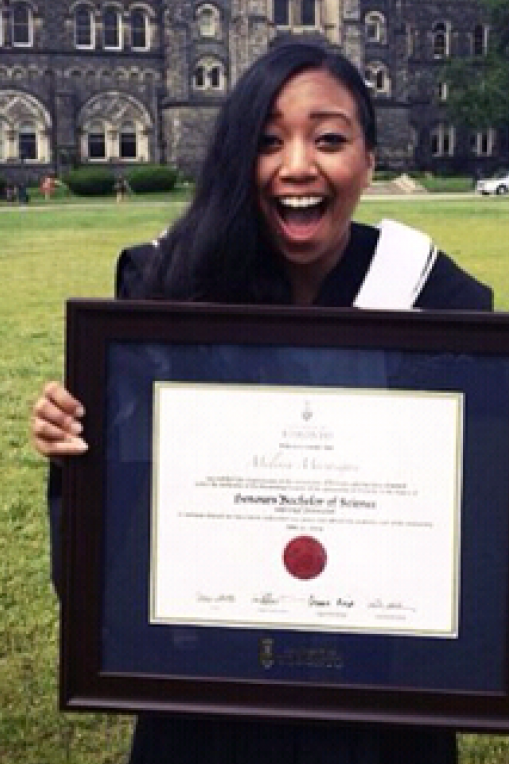
Melissa Marasigan
Biography
Melissa has an Honors Bachelors of Science degree with a double major in Linguistics and Psychology from the University of Toronto and is currently completing her Masters of Health Science degree in Speech-Language Pathology at the University of Toronto as well. "During my first year, I vividly remember sitting in my LINA01 Introduction to Linguistics course fascinated about how complex communication was. It was intriguing to learn about the importance of communication in our everyday lives as social beings- as it impacts our identity and social relationships. At the end of my first year, I approached my Linguistics Professor (Monica Irmia) and my TA (Trelani Milburn) to discuss about career options and they suggested Speech-Language Pathologist. I researched opportunities, started volunteering, working with Professors and everything started to fall in place." Melissa considers her greatest accomplishments are her acceptance to the Speech-Language Pathology Masters program, achieving a full-year scholarship for my first year in the SLP program, inspiring undergrads to pursue Linguistics-related careers as a TA at UTSC, and helping patients reach their communicative potential during my international placement at Mbingo Hospital and Integrated School for the Deaf in Cameroon. "I’d like to emphasize that the Centre for French and Linguistics program and the Professors have greatly prepared me for the Speech-Language Pathology program. My strong academic speech science foundation has definitely set me apart from most of my classmates in my current program. As an SLP graduate student, I’m able to apply my theoretical knowledge that I’ve learned at UTSC into clinical practice. I enjoy the fact that I’m able to make a real-world difference to the patients I see during my clinical internships. "
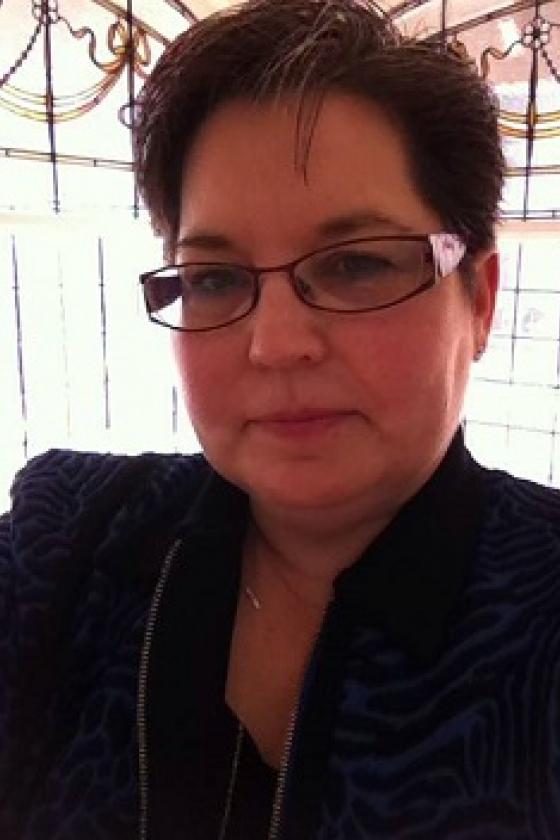
Trelani Milburn Chapman
Biography
Trelani earned an HonBA in Psycholinguistics from the University of Toronto Scarborough. She went on to complete her Master of Science and Doctorate degrees in Speech Language Pathology from the University of Toronto, and after completing a Postdoctoral Fellowship at Florida State University, Trelani is now an Assistant Professor at the University of Alberta. Trelani was an Early Literacy Specialist in Ontario before returning to academia. She wanted to identify cost-effective methods to improve children’s early language and literacy, particularly for preschool children considered statistically at-risk for poor academic outcomes. Having the courage to return to university after a number of years is what Trelani considers as her biggest accomplishment. "I was a mature student when I returned to academia to complete my degree in linguistics at UTSC. I was nervous that I would not be able to learn at an advanced academic level. I found that a number of the faculty encouraged my academic interests and gave me the support I needed to consider graduate school. Specifically, Dr. Rena Helms-Park supervised an Independent Research Study that I completed for undergraduate credit, the first research project that I designed and administered. This opportunity enabled me to see myself as a researcher.
I am grateful to Dr. Helms-Park who has been my mentor throughout graduate school and my postdoctoral fellowship. Furthermore, I am indebted to this department for the caliber of the education that I received in linguistics, the opportunities for teaching during graduate school (Thank you Dr. McCrindle, Dr. Irimia, and Dr. Takahashi!), and the constant support and encouragement from faculty." Trelani advises students to reach out to faculty early during their undergraduate years. "Ask about opportunities to volunteer in the department and on research projects. Get involved in research in your field. These learning experiences are incredibly valuable for a multitude of reasons, particularly for helping you in making decisions about graduate school."
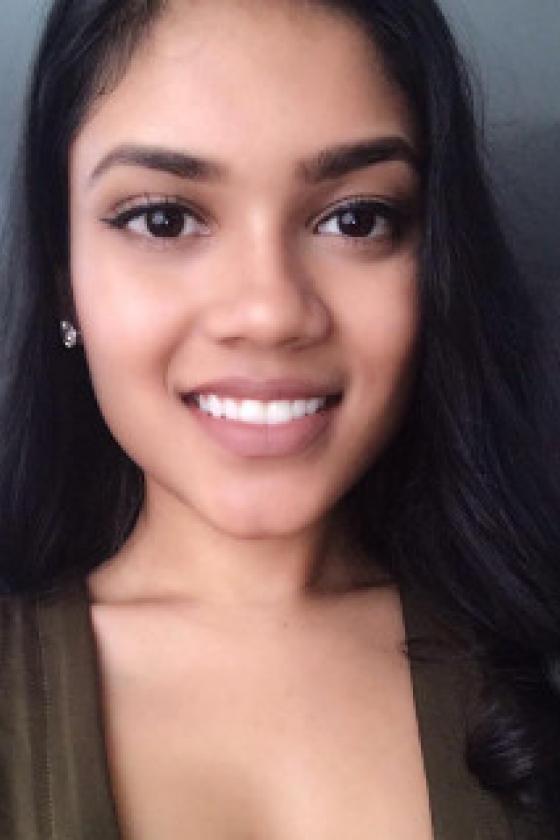
Darshani Rampersaud
Biography
Darshani received her Honours Bachelor of Arts degree from the University of Toronto, Scarborough (UTSC) in 2016, specializing in Psycholinguistics. She will be starting her Master of Health Science degree at the University of Toronto, Department of Speech-Language Pathology in the Fall of 2017. “Going into my first year at UTSC, I knew I wanted to take introductory courses in both linguistics and psychology, as I wanted to know whether a career in speech-language pathology was one I wanted to pursue. I was hesitant at first to take linguistics, as it was a subject I had never heard of before. However, after taking introductory courses, I immediately developed a passion for it. I can honestly say linguistics is a subject I would recommend to future students, as it allowed me to experience a more in depth study of language and opened my eyes to the importance of language in general. Shortly after starting my undergraduate studies, I began volunteering with different populations and taking part in research with Professor Rena Helms-Park and Professor Yoonjung Kang, in the Centre for French & Linguistics. I would not have had the opportunity to work with such distinguished individuals had I not taken that first linguistics course. I am currently pursuing graduate studies and hope to accomplish my goal of becoming a speech-language pathologist in the near future.
Overall, my time at UTSC allowed me to discover my passion, and if it were not for the wonderful faculty in the Linguistics department, that allowed me to grow as a student and as an individual, I would not be where I am today. UTSC will always be near and dear to my heart, as will the teachings of my professors as I venture into graduate school. If there were any advice I could give, it would be to try new courses in first year. You never know what you may like or where it may take you. Who knows, you might find your passion right here in the Linguistics department!"
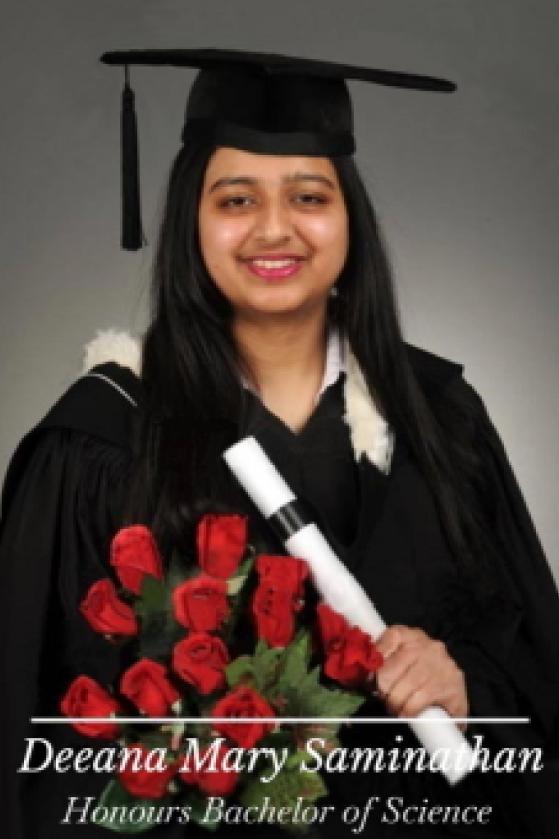
Deeana Saminathan
Biography
I recently graduated by double majoring in Health Science (Population Health stream) and French along with a minor in Biology. My program combination was unusual compared to my peers. I have a love and hate relationship with the French language. I was born in Montreal but did not stay there long enough to learn the language. I began studying French through the Extended French program in Grade five and pursued a Bilingual Core French Certificate throughout high school.
From my very first day at the University of Toronto Scarborough (UTSC) in 2015, I decided that French will be one of my majors after attending the first lecture of FREA01 with Professor Peric. . It was a struggle to fit both my French and science courses sometimes, but UTSC’s French program was well worth the struggle. All the French faculty members were exceptional. Since nobody in my family spoke the French language, I would often approach my professors and peers when I required any assistance. My goal was to converse with my French professors and brother in French in order to practice the language. Moreover, I did not only learn about the grammar and syntax of French, but I also had the opportunity to immerse myself into French culture by learning about the histories of Quebec and France.
I always tried to keep myself occupied both on- and off-campus through involvement with extra-curricular activities and employment opportunities, many of which were made possible by studying French. I participated in the French Conference twice throughout my time at UTSC, enhancing my confidence and developing my strong public speaking skills. As I gradually progressed to my third year, I was a senior year representative in the French Department Student Association. In this role, I expressed my informed insights on the French major through coordinating the Alumni Networking Event and the Faculty Mix and Mingle Event. During my work-study term at St. Michael's College Registrar Office and casual job at UTSC Residence, I had the opportunity to express bilingualism through writing French letters and speaking with students who were arriving at UTSC for the first time from French speaking destinations. Additionally, to apply my science background, I volunteered as a Research Assistant for two years with the SEARCH program at the Hospital for Sick Children and worked part-time at the Ontario Science Centre as a Clinical Research Assistant. Obviously, I am not a French expert but the knowledge I gained at UTSC will keep my doors open for future opportunities. I plan to pursue a career in healthcare or in education that requires bilingualism so I can keep up with French.
As Oprah Winfrey once said, "Passion is energy. Feel the power that comes from focusing on what excites you." I am truly grateful to say that I have found a true energy source stemming from my passion for French language and culture.
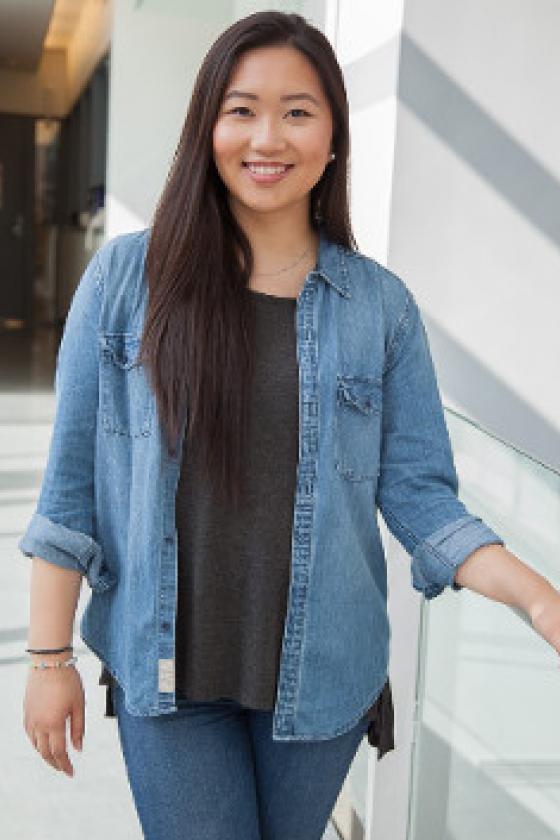
Rachel Soo
Biography
Rachel received her Honours Bachelor of Arts degree from the University of Toronto Scarborough (UTSC) in 2016. She is currently the Laboratory Coordinator for the UTSC Computation, Language and Speech Laboratory. Her role in the lab is to execute both electroencephalographic (EEG) and behavioural experiments, coordinate Research Assistants and participants, and assist the Principal Investigators in laboratory functions. As a student who entered university with the intention of pursuing an English and Psychology degree, and later becoming a teacher, she was pleasantly surprised when she stumbled upon LINA01 (Introduction to Linguistics) in her first year. “I highly encourage incoming undergraduates to take a Linguistics course, because it’s unlike anything they would have experienced in high school. I found a passion in Linguistics that I didn't quite have in either English or Psychology alone, and I would never have known about how perfectly it blended my two interests together had I not tested the waters with my first-year courses. After taking LINA01, I knew right away that I wanted to pursue a Linguistics degree and dedicated my time as an undergraduate linguist, to experiencing Linguistics in different environments. While the speech/language pathology aspect of Linguistics was an avenue many of my colleagues were after, I found interest in the academic side of Linguistics when I worked as a Facilitated Study Group (FSG) Leader and a Research Assistant with Professor Yoonjung Kang on a research project investigating the language of Tagalog.
FSGs allowed me to share my love for Linguistics by helping others understand the subject matter more thoroughly, and the research position took me across Canada and the United States to different Linguistics conferences. The project culminated a research paper, which was published in the Heritage Language Journal. After these experiences, I decided to concentrate on research projects in Linguistics, and took on a number of independent study courses, with Professor Yoonjung Kang, Professor Jessamyn Schertz, and Professor Philip J. Monahan for which I was a Principal Investigator. I am currently working on a project with Professor Philip J. Monahan, investigating how Cantonese tone is perceived by bilingual speakers with differing linguistic expertise. This research has taken me outside of North America to Hong Kong, where I was able to collect data at Hong Kong University. I hope to extend this line of research in the Fall of 2017 when I will be a graduate student in the Master of Arts program in Linguistics at the University of Toronto. I am indebted to my mentors and the entire Linguistics department for helping me realize my passion, and proud to call UTSC my home. I can only hope more students come to find their passion as well, be it in Linguistics or elsewhere."
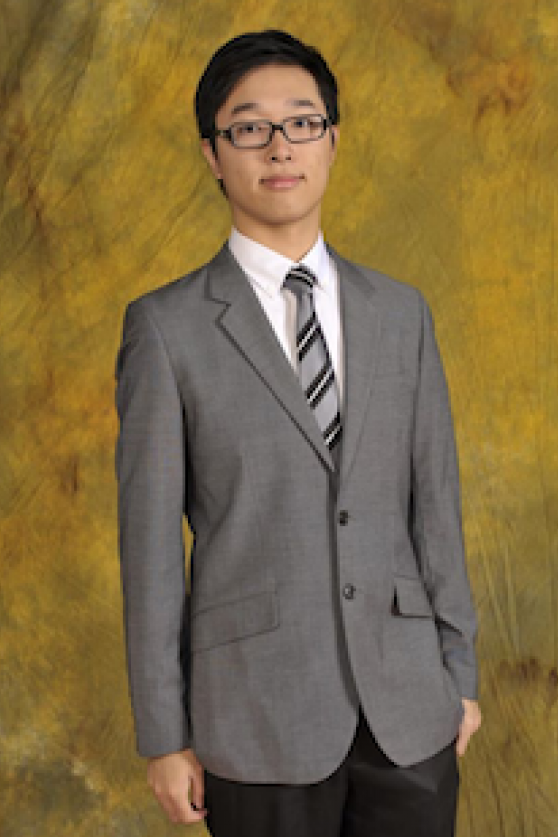
Marcus Tsz Wang Ng
Biography
I graduated from the University of Toronto Scarborough (UTSC) in June 2017, with an Honours Bachelor of Arts degree in Economics for Management Studies and a double minor in Applied Statistics and English/Chinese Translation. “Being bilingual does not make you a good translator.” Instilled with this belief by Professor Helen Wu, I have since the beginning learned to approach the world of translation differently. I have been living in a multicultural and bilingual city, Hong Kong, for over 20 years. Due to the fact that Hong Kong is a bilingual city, most businesses in Hong Kong have to provide two versions of publications or written documents. English and Chinese (in traditional Chinese characters) are the two main official languages which are used and spoken on a daily basis. Therefore, I always thought that translation between English and Chinese would not be a demanding task. But I was wrong about that.
My working experience at an accounting firm with a world-wide reputation in both Shanghai (summer 2012) and Hong Kong (summer 2014) as a corporate social responsibility intern had overthrown my expectations and given me a challenging and difficult time. Translating government official documents and business documents between English and Chinese were my main job during the internship which gave me a taste of how difficult translation is and showed me how different verbal and written translations are. After taking ECTB61H3 Theory and Practice of Translation, I understood right away that I wanted to do an ECT minor. After taking ECTD68H3 Translation for Business and Media and ECTD69H3 Translation for Government and Public Administration, I understood English and Chinese more profoundly and became more confident at work. These skills helped me a great deal during my part-time job at a well-known real estate developer in the Greater Toronto Area (GTA) where I needed to do a lot of sight translation. I was often asked to just look at a document and translated it immediately into the other language. I met clients in GTA offices. The documents I had to do sight translation for were legal documents, like housing agreements. Sometimes I used Cantonese and sometimes I had to use Mandarin based on the clients’ needs.
So as a native speaker of Cantonese, to learn Mandarin at UTSC was extremely useful in a practical sense. Currently, I am working as a paralegal in Hong Kong at TC & Co. Solicitors, which specializes in corporate finance. I have been assisting in several IPO (initial public offering) cases, i.e. drafting prospectuses, providing due diligence investigation across China and overseas countries, and providing administrative support to various legal work including writing minutes of drafting meetings in both Chinese and English, conference calls, PRC (People’s Republic of China) legal research, and communication with clients. Translating prospectuses, due diligence questionnaires and other legal documents from English to Chinese or vice versa are some of my daily assignments. ECTD69H3 Translation for Government and Public Administration helped me understand more on how to translate a legal document correctly, including the translation of legal terms. Cantonese, Mandarin, and English are often used during the due diligence investigation, which requires a lot of sight translations. Last but not least, I highly recommend new undergraduates to take the translation courses, especially if you are interested in both English and Chinese. It’s unlike anything you would or could have experienced in other schools. My fellow schoolmates, whether you are living in Canada or planning to go back to China or even to my hometown Hong Kong to work, the ECT minor at UTSC really helps you in developing very good skills for your future use.
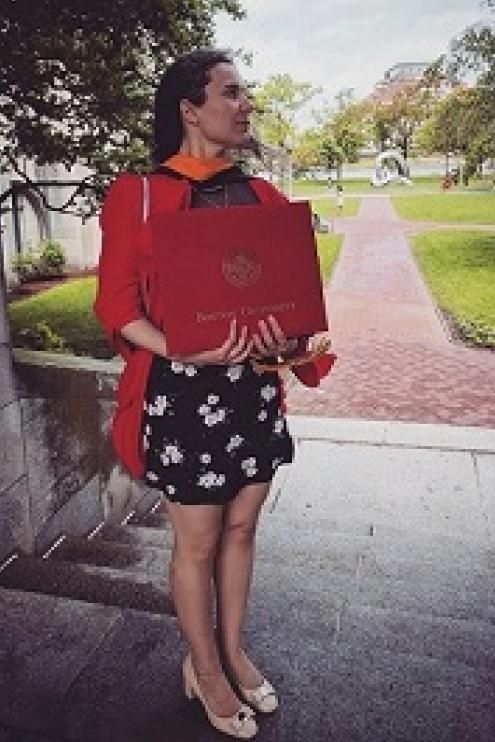
Alissa Varlamova
Biography
Alissa received her Honours Bachelor of Science degree from the University of Toronto Scarborough in 2016, with a double major in Mental Health Studies and Linguistics. She pursued linguistics and psychology as she felt those majors would give her the best foundation of knowledge in order to pursue a career in Speech Language Pathology. She tried to be involved in as many volunteer and research opportunities as time permitted. Throughout her studies at UTSC, she was a research assistant in the Swallowing Lab as well as the Voice and Resonance Laboratory. Being involved in research was a fantastic hands on opportunity and it provided her a different perspective on the field of speech pathology. At the same time, she was also volunteering as an SLP assistant at multiple pediatric and adult clinics. She says that these experiences gave her a strong foundation of knowledge working with children and adults with various communication and cognition deficits.
After graduation, she moved to Boston to pursue Masters of Science in Speech Language Pathology degree from Boston University, and she graduated in May 2016. She says she was lucky enough to have a placement at Boston Medical Center, one of the biggest safety-net hospitals in Boston. She had the opportunity to work in acute care such as ICU and MICU which well prepared her to be able to step into her role as a clinical fellow. She received a job offer from the other side of the country and ended up moving to Las Vegas, Nevada.
She currently works as a Speech Language Pathologist with the inpatient population at a Dignity Health Hospital in Las Vegas. She works mostly with patients with dysphagia (swallowing) disorders as well as treat cognition, language and speech. She plans to continue to work with the inpatient population as well pursue doctoral studies in the field of dysphagia.
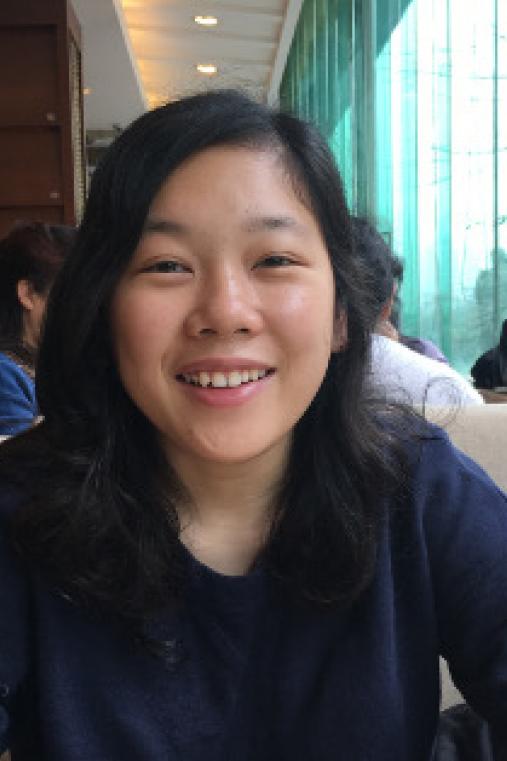
Michelle Ning Yan Chui
Biography
Michelle completed an Honours of Bachelor Science in Neuroscience Specialist and Linguistics major from UTSC in 2016, and is currently a first year Speech-Language Pathology Masters student at the University of Toronto. "I had a passion for both neuroscience and linguistics since middle school, it was a tough decision when I chose to apply for the neuroscience but not linguistics in the undergraduate program at first. I love the neuroscience courses, but my curiosity for linguistics did not diminish at all. My passion for linguistics grew even stronger when I took the introduction of linguistics LINA01 and LINA02 in my first and second year. I was very fortunate to be in UTSC where I can freely customize my program choices and course schedule. In the summer of second year, I decided to take on a linguistics major, and it was one of the best decisions I have made. I have learnt so much from the approachable professors in the department.
The linguistics course selections here are eye-widening, such as the unique Creole and Pidgin course taught by Professor Karen McCrindle. The French and Linguistics Department gave me a lot of opportunities to explore languages and approach linguistics with different angles. In fact, my first encounter with speech pathology was the Speech and Language Disorder in Adults and Children course taught by Professor Aravind Namasivayam. I was fascinated by how S-LPs apply cognitive science and linguistics to help people. I then started to volunteer as an RA in the St. George campus S-LP lab and many other places, including audiology clinics, private S-LP clinics and the Aphasia Institute. During my gap year after my undergraduate degree, I wanted to apply my knowledge in linguistics research. Professor Philip J Monahan kindly agreed to mentor me on my self-initiated project in Cantonese-Roman digraphia with my research partner. The knowledge and insights I have learned from him are paramount. As an aspiring Speech-Language Pathologist, I hope to use my knowledge and skills to help ethnical groups across Canada, I also want to keep doing research to improve clinical techniques that maximize improvements in people.”
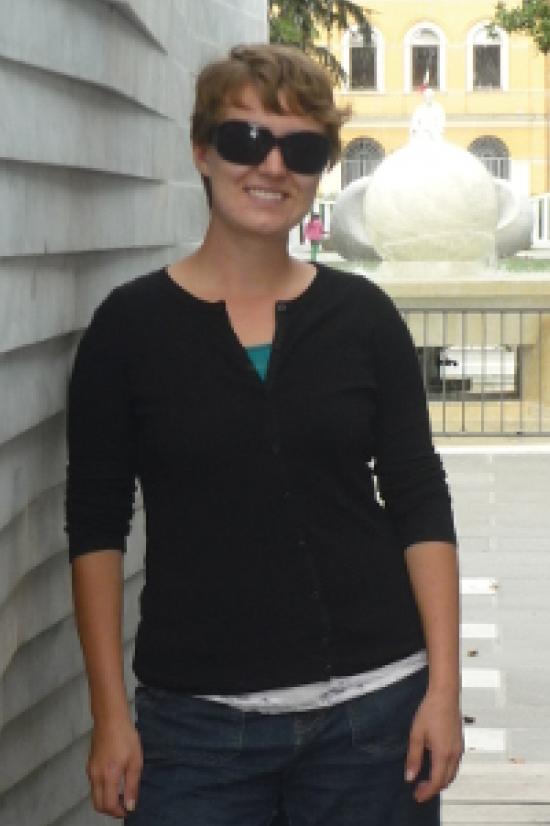
Heather Yawney
Biography
Heather received her Honours Bachelor of Arts degree from the University of Toronto Scarborough in 2012 with a Specialist in French and Minor in Linguistics and her Masters of Arts in 2016 from the University of Québec at Montréal in Linguistics. She is currently pursuing her Doctorate in Linguistics from the University of Toronto. She first became interested in continuing her education in French after spending a year abroad in Istanbul, Turkey with the Rotary Youth Exchange and making ample efforts to learn Turkish. Having been through French immersion from Kindergarten to Grade 9 and IB French in High School in my hometown of Lethbridge, Alberta, she wanted to improve her French and attain a certain level of proficiency. She loves the fact (and continues to express her enthusiasm when discussing her undergraduate experience) that the Specialist in French focuses on all areas of language, including grammar, linguistics, literature and culture. After having focused most of her second year on linguistics courses, she knew she found her passion. Linguistics offered a different perspective to prescriptive grammar. She thanks, Karen McCrindle and Juvenal Ndayiragije for influencing her pursuit of linguistics and Pascal Riendeau for influencing her desire to continue her education in a francophone environment. This propelled her decision to apply exclusively to Quebec universities for her Masters.
UQAM allowed her weave together her passion for linguistics and the Turkish language and her love of French. She focuses on the syntax-phonology interface with regards to the positional variation of the yes/no question marker on Turkish verbs and the irregular stress pattern that surfaces. She also had the opportunity to study two semesters abroad in Toulouse, France, with courses focused on neuropsycholinguistics. Pursuing her doctorate allows her to continue working on Turkish irregular stress patterns and syntactic phenomena. One of the best parts about her doctorate. Her favourite part of being back at UofT is coming back to UTSC to TA for the linguistic courses. She loves teaching linguistics to others and finds connecting with students very rewarding. In September 2017, she will also be enrolled in the Translation certificate with the University of Toronto Continuing Studies and plans to pursue a programme in copy editing and proofreading afterwards. She understands that getting a professorship is very difficult so she is keeping her options open. She has already done some English-French and Turkish-English translation so finding work that allows her to use two of her languages is very appealing.
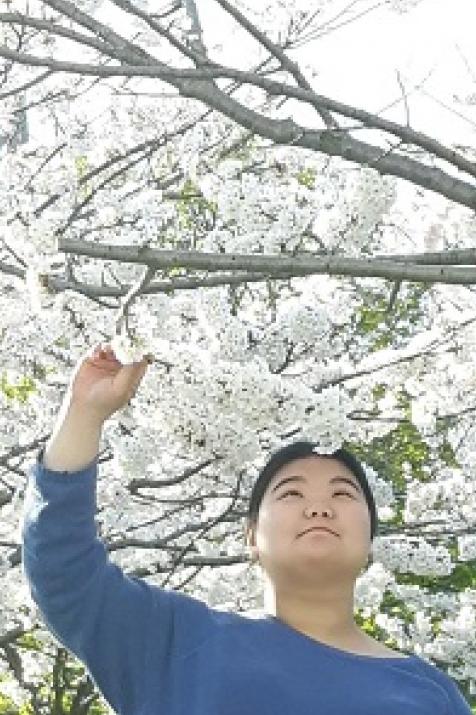
Iris Duan Yun Yang
Biography
Iris received an Honours BSc specializing in Neuroscience, with a double minor in Psychology and English/Chinese Translation from UTSC in 2017.
She will be pursuing her MA in Translation at York University, Glendon Campus, in the fall of 2018. “I still remember that day in my third year when I caught four big and bold Chinese characters 中英翻译 (Chinese/English Translation) on the UTSC home page. I was so excited that there was a new ECT minor program, and I was so eager to apply for the program. ECT provided a great opportunity for me to obtain the fundamental theoretical knowledge and practical English/Chinese translation skills. Throughout my high school years, I had been interpreting for new immigrants at The Cross-Cultural Community Services Association, which is a non-profit organization that assists new immigrants. Therefore, I understand that orally translating from English to Chinese, or vice versa, is a challenging task despite the fact that I am fluent in both languages. When I was interpreting a sentence for a client, I enjoyed the process of finding a more suitable word in my Chinese mental dictionary that better matched the English word, and vice versa. This was the moment that I discovered my interest in translation, which gradually expanded into a passion. My foundation in English/Chinese translation was developed after taking ECTB61H3 English to Chinese Translation: Theory and Practice in the fall of 2015. In the course, Professor Helen Wu explained the various issues that translators would encounter and offered some suggestions for dealing with the obstacles. One of our projects was to translate some parts of Olivia Chow’s My Journey: A Memoir. During class, Professor Wu analyzed the students’ Chinese versions and provided feedback, which allowed me to learn the strengths and weaknesses of my translation. One of my weaknesses was that my Chinese skills were below that of my peers, and thus LGGC64H3 Reading Chinese: China from the Inside Out (fall 2015) allowed me to practice my Chinese writing by studying the scripts of classic Chinese movies, e.g., Farewell My Concubine.
Professor Wu recommended students to practice their Chinese writing through typing, including the fundamental pinyin Romanization. By adding film studies into the course, my Chinese writing improved a lot, and even one of my Chinese compositions, “The Idealism and Realism within Correspondence with Heaven: On The Last Love Letter from Dr. Norman Bethune and Other Collections,” was selected to be published on the Chinese Canadian Voice website. After taking these two courses, I successfully gained a Work-Study Program position as an English-Chinese Aide. In this capacity, I assisted Professor Wu in preparing lecture material. I really enjoyed reading pieces of literature and their corresponding Chinese versions, and vice versa. In both ECTD69H3 Translation for Government and Public Administration (winter 2016) and ECTD68H3 (fall 2016) Translation for Business and Media, I was able to apply my knowledge in translating government and public administration documents, as well as material with business and media content. In ECTD68H3, Dr. Jingsong Ma explained the role of translation in the advertisement, which assists companies in introducing their products into the Chinese world. Subsequently, I have been able to sell my products by using English, Mandarin, and Cantonese when I am working at Uncle Tetsu’s Japanese Cheesecake at the Pacific Mall location. Since I am able to communicate with customers with a Chinese background, I have become the top seller in the store. Furthermore, Dr. Renee Rui Wang inspired me by explaining how English/Chinese translation is utilized in the healthcare field in ECTD69H3 she taught.
One of my assignments was to translate the “Introduction to Bipolar Disorder” from the University Health Network, which provides the combination of my interest in psychology and ECT. In addition, I will always remember Dr. Wang’s five-steps of translation method, and I continue to use it as a freelance translator. ECT can apply to diverse disciplines, and this can lead to a career. During my gap year after graduation, I successfully translated an article in linguistics from Chinese into English – “Cultural and Psychological Factor Impacts on Oral Chinese Fluency and Accuracy for the Advanced Chinese Language Learner.” I not only gained ECT skills as a freelance translator but also obtained an opportunity to apply my knowledge of scientific report writing. Besides these amazing courses, I had the good fortune to participate in the first UTSC Sight Translation Competition (winter 2017), in which I sight translated, from Chinese to English, a part of the autobiography by Lang Lang, a world famous pianist. I am so glad that ECT has held extracurricular events along with the English and Chinese Translation Studies Association (ECTSA) and the Translation and Social Science Career Path Association (TSCPA), the two students’ organizations. I, as a Marketing Director for ECTSA, liked the process of promoting ECTSA activities among members. Through the student events guided by our teachers, my interest in ECT has grown more and more, so I look forward to pursuing my MA in Translation degree.
Finally, I highly recommend undergraduates to join the ECT program if you are interested in communicating in both English and Chinese. The ECT minor allows you to highly develop the skills that you can potentially apply to situations from everyday communications to a professional career.